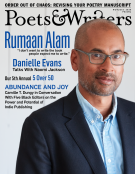In the midst of COVID-19, the country’s oldest arts residency is reimagining itself after 113 years. In August, MacDowell launched its first Virtual MacDowell “residency,” a fully online program intended to support artists and foster a sense of connection during the time of social distancing.

Administrative assistant Laura Hanson prepares picnic baskets to mail to residents, adapting MacDowell tradition to the new, virtual format. (Credit: Jonathan Gourlay, courtesy of MacDowell)
The decision has pushed organizers to reconsider what makes a residency valuable to artists. Since its inception MacDowell has strived to give artists a space away from their daily lives to pursue their work in the dynamic company of talented peers. Founded by composer Edward MacDowell and pianist Marian MacDowell, the program has hosted more than eight thousand artists on a former farm in Peterborough, New Hampshire, since 1907. Formerly known as the MacDowell Colony—earlier this year, the organization officially dropped the word colony from its name to, as the organization’s press release states, “remove terminology with oppressive overtones”—MacDowell has hosted writers such as Louise Erdrich, Audre Lorde, Ann Pachett, Mary Ruefle, Alice Walker, and Colson Whitehead, in its thirty-two studios. “It has now become a place in my mind that is holy, a place for true artistic exploration and discovery,” says poet Brenda Shaughnessy, a seven-time MacDowell resident. “When I feel like I’m in that free space, even in my mind…that’s when flow happens.”
With its studios closed for the foreseeable future, MacDowell staff have focused on cultivating that sense of free space and the stimulating conversations its residency offers on virtual platforms. “We knew it wouldn’t be a residency in the same way, but it would be able to create a community,” says Philip Himberg, MacDowell’s executive director, reappraising what residencies offer beyond physical space for work. “Anyone who has been to MacDowell will say that even though they spent 80 percent of their time in their studio and maybe 20 percent of their time socially interacting, that the actual, visceral experience is fifty-fifty, that the time at dinner—which is the meal where everyone gathers formally—the exchange of ideas and the energy among people is really as meaningful to them as the time they spent in their studios.”
When the first Virtual MacDowell convened for the month of August, it was envisioned not as a replacement of the on-site MacDowell experience, but rather as an experiment, with the hopes that Virtual MacDowell might prove an essential supplement to regular programming. The eight fellows who participated represent a cross section of artistic disciplines. Each received a $1,000 stipend to help offset costs for taking time off at home. In lieu of the meals famously delivered to residents’ cottages, each artist was mailed a picnic basket filled with books, recipes, and even potted earth and seeds from the gardens, so that they might have a piece of Peterborough. The participants also received two dinner deliveries, to continue the sense of shared meals, and were given virtual tours of MacDowell’s James Baldwin Library and access to digital archives, and attended group film screenings. These online interactions occurred twice a week for four weeks, during which the participants had the opportunity to discuss their own artistic practices and daily concerns.
“That first day when we all got together on Zoom, we were really just talking about how it feels impossible right now to be creative,” says writer and Virtual MacDowell fellow Jacob Guajardo. “Hearing from someone like Brenda, who has been producing work for longer than I have, and a lot of the other people saying they feel stuck, or they have moments, these bouts of creativity—it felt great to hear that I wasn’t the only one.”
“It’s always lovely to talk to other artists,” says Shaughnessy, reflecting on the in-person experience versus working from home. “Usually you’re in a situation where you’re struggling with your own work, alone in a cabin, well nourished but very much solo…and it’s very lonely. So by the time you’re done with that for the whole day, you’re very, very happy to talk to another artist…I think [Virtual MacDowell] is trying to approximate that.”
Many residencies are similarly navigating closures and trying to engage artistic communities at a distance. Virtual VCCA, a COVID-19 initiative hosted by the Virginia Center for the Creative Arts, is an online platform where residency fellows, staff, and supporters share a live video series, private chats, and opportunities to present their creative work. The Vermont Studio Center’s Virtual VSC, which launched in April, features online art exhibitions, readings, and artist talks from their fellows. Himberg says a version of Virtual MacDowell is likely to run again in the fall. What was developed for the extraordinary circumstances of the pandemic might have staying power beyond them: These new programs may model a more inclusive residency experience for artists who are unable to attend in-person, whether for financial or family reasons, because of available accessibility accommodations at a venue, or because they live abroad.
“There are really talented artists who, for whatever reason, cannot make the trip to MacDowell,” Himberg says. “There are many different things we think this virtual version of MacDowell might make better, and I’m hopeful that it will get more responsive to the needs of the community. That’s what is most important.”
Thea Prieto’s fiction, reviews, and interviews have appeared in Longreads, the Masters Review, and other journals. The author of From the Caves (Red Hen Press, 2021), she writes and edits for Propeller and the Gravity of the Thing. Her website is theaprieto.com.








